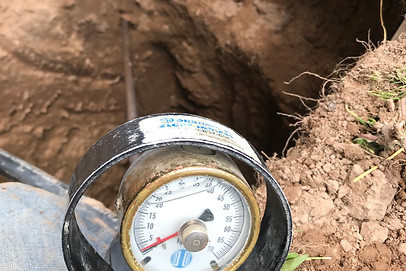

BOZEMAN’S QUALITY GEOTECHNICAL ENGINEERING FIRM – EST 2004



Licensed in these States




Castle Rock Geotechnical provides forensic geotechnical support for construction projects and these include legal complaints. Our geotechnical expertise is based on education and years in practice along with advanced course work. Andy Pilskalns P.E. has conducted geotechnical evaluations and investigations to determine the failure of structures and to evaluate structures. Identify geotechnical related problems contributing to structural integrity, failure requires an intergraded understanding of civil, structural and construction disciplines.
Our reports and conclusions are based on evidence found during our investigation and evaluation, sound engineering fundamentals, standard of care of the profession.
We have investigated new, old and historic structures. Clients can be Architects, Local Municipalities, Insurance Companies, Property Owners, Lawyers, Developers, State and Government Agencies.
What is Forensic Geotechnical Engineering?
Geotechnical engineering is a branch of civil engineering that deals with the behavior of earthen materials and how they interact with man-made elements such as foundations, flat work, or pipelines. Issues that geotechnical engineers may be asked to evaluate include the suitability of potential construction sites, how the soils at the site will behave in their native state or when they are reworked as fill, the ease with which soil and/or rock can be excavated, or if materials at a site are able to support the proposed construction.
What Do We Do?
Castle Rock Geotechnical Enginerring specializes in forensic geotechnical evaluations. Typically, this includes studying and diagnosing the cause of movement that has led to cracks, separations, and other types of distress in relatively newer buildings. Our evaluations typically culminate with written reports of our findings, opinions, and repair recommendations for the project. Common issues that may arise that a forensic geotechnical analysis can help with include:
-
Damages Resulting From Water Loss
-
Structure Analysis Related to Foundation or Soil Movement
-
Moisture Intrusion
-
Drainage & Flooding
-
Expansive Soils
-
Collapsible & Compressible Soils
-
Retaining Wall Failures
-
Determine Angular Distortion of Buildings
-
Asphalt Pavement Distress and Settlement
-
Tripping Hazards From Concrete Flatwork Cracking & Vertical Offsets
-
Corrosion to Concrete & Masonry
Field Sampling and Laboratory Testing
In the course of our evaluations we frequently collect data and samples of the material at the sites. As part of our analyses, we routinely provide the following field sampling capabilities:
-
Field Sampling and Laboratory Testing
-
Field classification and description of soils conforming to ASTM D-2488-09a
-
Split barrel sampling conforming to ASTM D-1586-08a and D-1587-08
-
Thick wall, ring-lined, split barrel sampling conforming to ASTM D-3550-01
-
Advancement of soil borings and sampling equipment with hand samplers, truck-mounted drills and hollow stem augers, and limited-access drilling equipment
L
aboratory testing services that we provide include:
-
Determination of water content, ASTM D-2216
-
Sieve Analysis, ASTM D421
-
Suclear gauge Method ASTM D6938, In-Situ, Moisture Density Testing
-
Static & Dynamic Cone Penetration Testing - Portable Unit
-
High Precision Altimeter Slab Survey
-
Inclinometer Installation and Readings
-
Atterberg Limits, ATM D-4318 and ASTM D-427
-
Standard Proctor Compaction, ASTM D-698
-
Modified Proctor Compaction, ASTM D-1557
-
Consolidation, ASTM D-2435









